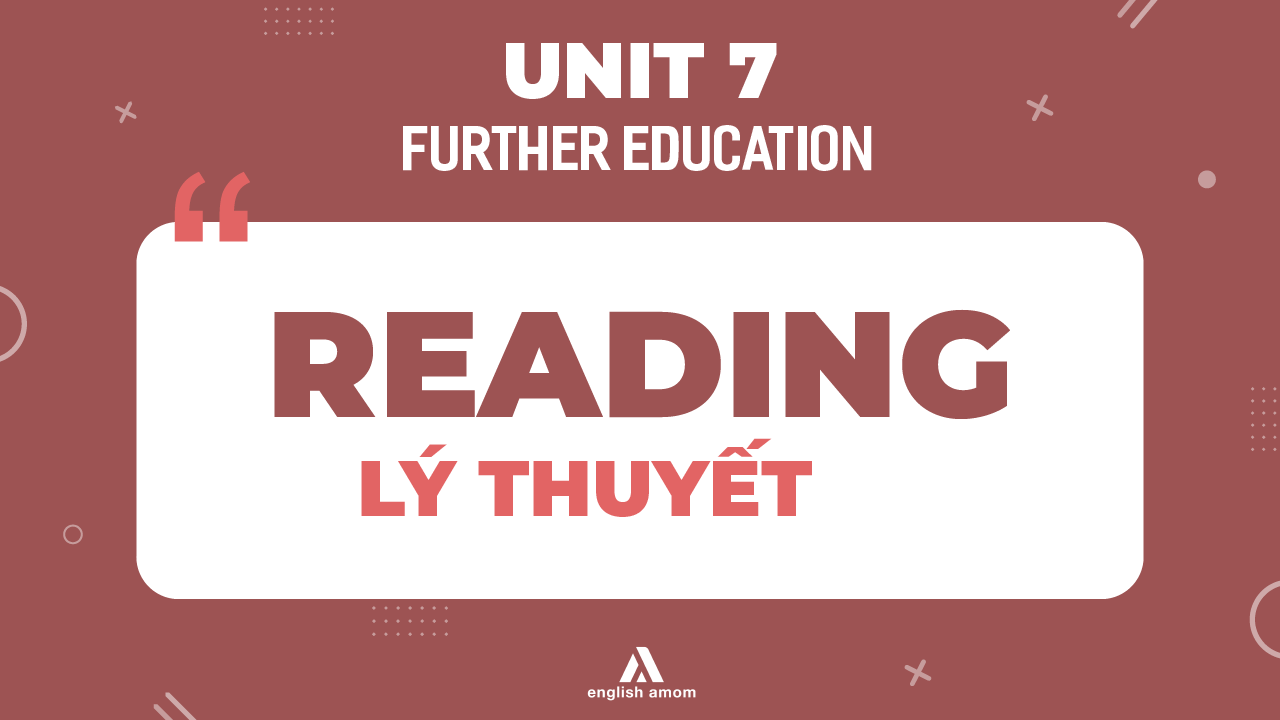
► Kênh hỏi đáp và giải thích thắc mắc kiến thức MIỄN PHÍ → truy cập LINK NHÓM: ENGLISH AMOM
► Kênh YOUTUBE hệ thống toàn bộ bài giảng CLIPS: truy cập LINK: ENGLISH AMOM CHANNEL
► Kênh TIKTOK: ENGLISH AMOM
1) Look at the table of the British state-run education system. Can you make a similar table for the education system of Viet Nam?
|
School |
Age |
Examination |
|
Kindergarten |
3-5 |
|
|
Primary school |
6-10 |
|
|
Lower secondary school |
11-14 |
|
|
Upper secondary school |
15-17 |
GCSE |
2) Quickly read the text. Choose the best heading for it.
A. Comparing the A-level and IB Diploma Programme
B. Preparing for higher education in the United Kingdom
C. IELTS and further education in the United Kingdom
|
In the United Kingdom (UK), there are many opportunities for students who wish to continue their education after finishing secondary school. Not only British students, but also students from all over the world have been pursuing UK’s higher education qualifications — bachelor’s degrees, master’s degrees and doctorates — as they are usually highly appreciated worldwide. In order to prepare for higher education at a university or college, students need to consider academic qualifications such as the A-level or International Baccalaureate (iB) Diploma Programme. The A-level — the General Certificate of Education (GCE) Advanced Level — is a worldwide secondary school leaving qualification. It requires students to select three or four subjects like mathematics, chemistry, biology, geography, history, etc., which will help them to prepare for higher education. They have to study them over a period of two years and sit for AS and A2 examinations respectively at the end of each year. An alternative to the A-level is the IB Diploma Programme, which provides qualifications in six or seven subjects, among which mathematics, native language and theory of knowledge (TOK) are mandatory. TOK is a two-year subject which aims to broaden students’ understanding of the interactions among different school subjects. This programme is now available in more than 200 state and independent schools and colleges in the UK. Students whose first language is not English need to take an English language test like IELTS (International English Language Testing System) before applying to any higher education courses. As there are two versions of the IELTS - Academic and General Training — students should ask the institution they are applying to which version is required. |
ĐÁP ÁN: B
3) Match each of the words with its meanings. Use a dictionary, if necessary.
ĐÁP ÁN:
1. pursue (v) – d follow something and try to achieve it
2. appreciate (v) – c. recognise the good qualities of something
3. respectively (adv) – e. in the order mentioned
4. mandatory (adj) – a. equired by rules or regulations
5. broaden (v) – b. increase knowledge or experience
4) Read the text again. Dccidc if the following statements are true (T), false (F), or given (NG). Tick the correct boxes.
ĐÁP ÁN:
1 – NG. In the UK, there are many opportunities for students to pursue vocational education.
2 – F. Only British students are allowed to pursue higher education in the UK.
3 – F. Mathematics and chemistry are compulsory subjects for the A-level qualification.
4 – F. After finishing their A-levels, students have to take part in the IB Diploma Programme.
5 – T. Students whose mother tongue is not English have to take an English language test.
5) Work in pairs. Discuss how you can prepare for higher education in the UK.
ĐÁP ÁN:
Do you know the school year in the UK is organised?
What are the common types of examinations in the UK?
What are some of the best universities in the UK?
How can you find the most appropriate course for you?
What kind of skills do you need?

